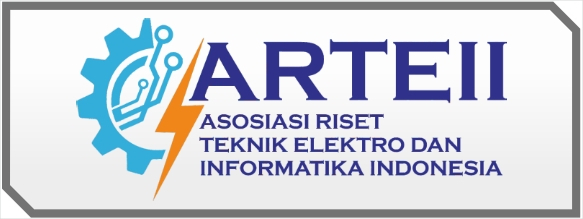The Strategic Role of AI in Enhancing MIS Performance and Innovation
DOI:
https://doi.org/10.61978/data.v2i4.723Keywords:
Artificial Intelligence, Management Information Systems, Process Automation, Decision-Making, HRMIS, Organizational Learning, Digital TransformationAbstract
The integration of Artificial Intelligence (AI) into Management Information Systems (MIS) has reshaped organizational operations across sectors. This narrative review explores the multidimensional impact of AI on MIS by synthesizing findings from recent peer-reviewed literature. The study aimed to analyze how AI technologies enhance MIS functions, focusing on areas such as process automation, decision support, HR management, corporate learning systems, and export-oriented quality control. Literature was sourced from databases like Scopus and Google Scholar using Boolean search techniques with targeted keywords. Inclusion criteria emphasized relevance, recency, and methodological rigor. Findings indicate that AI and Robotic Process Automation (RPA) optimize operational efficiency, while AI-enhanced decision-making tools offer strategic foresight across industries. In HRMIS, AI facilitates recruitment, performance appraisal, and diversity outcomes, whereas AI-driven learning platforms improve training efficiency and employee engagement. The implementation of AI in quality control and export readiness is linked to higher compliance, predictive analytics, and competitiveness. However, challenges such as algorithmic bias, data inconsistencies, and limited transparency underscore the need for systemic readiness. Theoretical frameworks including the TOE model and RBV elucidate how internal capabilities and environmental contexts shape AI integration. The study concludes that national policies, ethical design, infrastructure development, and cross-sector collaboration are essential for maximizing AI’s potential in MIS, paving the way for responsible and inclusive digital transformation.
References
Ahmad, H., Hanandeh, R., Alazzawi, F., Al-Daradkah, A., ElDmrat, A., Ghaith, Y., … & Darawsheh, S. (2023). The effects of big data, artificial intelligence, and business intelligence on e-learning and business performance: evidence from Jordanian telecommunication firms. International Journal of Data and Network Science, 7(1), 35–40. https://doi.org/10.5267/j.ijdns.2022.12.009 DOI: https://doi.org/10.5267/j.ijdns.2022.12.009
Andres-Jimenez, J., Medina, J., Sanz, L., Martínez-Herráiz, J., & Ruiz-Pardo, E. (2020). An intelligent framework for the evaluation of compliance with the requirements of ISO 9001:2015. Sustainability, 12(13), 5471. https://doi.org/10.3390/su12135471 DOI: https://doi.org/10.3390/su12135471
Chipriyanova, G. and Krasteva-Hristova, R. (2023). Technological aspects of accounting automation system as a decision support system. Environment Technology Resources Proceedings of the International Scientific and Practical Conference, 2, 28–33. https://doi.org/10.17770/etr2023vol2.7309 DOI: https://doi.org/10.17770/etr2023vol2.7309
Drabiak, K. (2022). Leveraging law and ethics to promote safe and reliable AI/ML in healthcare. Frontiers in Nuclear Medicine, 2. https://doi.org/10.3389/fnume.2022.983340 DOI: https://doi.org/10.3389/fnume.2022.983340
Gonçalves, C., Gonçalves, M., & Campante, M. (2023). Developing integrated performance dashboards visualisations using Power BI as a platform. Information, 14(11), 614. https://doi.org/10.3390/info14110614 DOI: https://doi.org/10.3390/info14110614
Huang, J. (2024). Impact of non-performing corporate assets on shareholder’s equity and return on the application of AI and blockchain technologies. Journal of Wireless Mobile Networks Ubiquitous Computing and Dependable Applications, 15(3), 412–423. https://doi.org/10.58346/jowua.2024.i3.027 DOI: https://doi.org/10.58346/JOWUA.2024.I3.027
Karinshak, E. and Jin, Y. (2023). AI-driven disinformation: a framework for organizational preparation and response. Journal of Communication Management, 27(4), 539–562. https://doi.org/10.1108/jcom-09-2022-0113 DOI: https://doi.org/10.1108/JCOM-09-2022-0113
Kim, S. and Kim, Y. (2017). The effect of compliance knowledge and compliance support systems on information security compliance behavior. Journal of Knowledge Management, 21(4), 986–1010. https://doi.org/10.1108/jkm-08-2016-0353 DOI: https://doi.org/10.1108/JKM-08-2016-0353
Krap, A., Bataiev, S., Bobro, N., Kozub, V., & Hlevatska, N. (2024). Examination of digital advancements: their influence on contemporary corporate management methods and approaches. Multidisciplinary Reviews, 7, 2024spe026. https://doi.org/10.31893/multirev.2024spe026 DOI: https://doi.org/10.31893/multirev.2024spe026
Lamrhary, M. and Slaoui, S. (2025). Organizational agility and artificial intelligence., 563–588. https://doi.org/10.4018/979-8-3373-1005-3.ch023 DOI: https://doi.org/10.4018/979-8-3373-1005-3.ch023
Rafi-ul-Shan, P., Bashiri, M., Kamal, M., Mangla, S., & Tjahjono, B. (2024). An analysis of fuzzy group decision making to adopt emerging technologies for fashion supply chain risk management. IEEE Transactions on Engineering Management, 71, 8469–8487. https://doi.org/10.1109/tem.2024.3354845 DOI: https://doi.org/10.1109/TEM.2024.3354845
Xiaqiu, L. (2021). Information automatic sharing model based on big data mining algorithm. Journal of Physics Conference Series, 1982(1), 012137. https://doi.org/10.1088/1742-6596/1982/1/012137 DOI: https://doi.org/10.1088/1742-6596/1982/1/012137
Xiao-hu, L., Han, L., & Hong, L. (2022). Analyzing relationship between financing constraints, entrepreneurship, and agricultural company using AI-based decision support system. Scientific Programming, 2022, 1–9. https://doi.org/10.1155/2022/1634677 DOI: https://doi.org/10.1155/2022/1634677
Xiong, L. (2021). Enterprise financial shared service platform based on big data. Journal of Physics Conference Series, 1852(3), 032004. https://doi.org/10.1088/1742-6596/1852/3/032004 DOI: https://doi.org/10.1088/1742-6596/1852/3/032004
Lynd, D., & Harne, R. (2017). Strategies to predict radiated sound fields from foldable, Miura-ori-based transducers for acoustic beamfolding. The Journal of the Acoustical Society of America, 141(1), 480–489. https://doi.org/10.1121/1.4974204 DOI: https://doi.org/10.1121/1.4974204
Morales, P., Haique, A., Cortez, E., Filippa, L., & Adra, R. (2024). Determining factors in the implementation of Industry 4.0 in Argentine SMEs. Journal of Technology Management & Innovation, 19(1), 66–78. https://doi.org/10.4067/s0718-27242024000100066 DOI: https://doi.org/10.4067/S0718-27242024000100066
Nielsen, M., & Ali, W. (2021). Governing and monitoring the digital transformation: Assessing the Qatari experience since 2003., 246–253. https://doi.org/10.1145/3494193.3494227 DOI: https://doi.org/10.1145/3494193.3494227
Osah, U., & Khene, C. (2022). Designing strategy formulation in the midst of uncertainty in digital citizen engagement: A critical reflection of the application of design science research augmented by soft systems methodology to the design of strategy formulation. The Electronic Journal of Information Systems in Developing Countries, 89(3). https://doi.org/10.1002/isd2.12247 DOI: https://doi.org/10.1002/isd2.12247
Rabbi, M., Amin, M., Al‐Dalahmeh, M., & Abdullah, M. (2025). Assessing the role of information technology in promoting environmental sustainability and preventing crime in e-commerce. International Review of Applied Sciences and Engineering, 16(1), 81–97. https://doi.org/10.1556/1848.2024.00834 DOI: https://doi.org/10.1556/1848.2024.00834
Wang, M., Yuan, R., Guan, X., Wang, Z., Zeng, Y., & Liu, T. (2024). The influence of digital platform on the implementation of corporate social responsibility: From the perspective of environmental science development to explore its potential role in public health. Frontiers in Public Health, 12. https://doi.org/10.3389/fpubh.2024.1343546 DOI: https://doi.org/10.3389/fpubh.2024.1343546
Weil, M., Spinler, K., Lieske, B., Dingoyan, D., Walther, C., Heydecke, G., … & Aarabi, G. (2023). An evidence-based digital prevention program to improve oral health literacy of people with a migration background: Intervention mapping approach. JMIR Formative Research, 7, e36815. https://doi.org/10.2196/36815 DOI: https://doi.org/10.2196/36815






